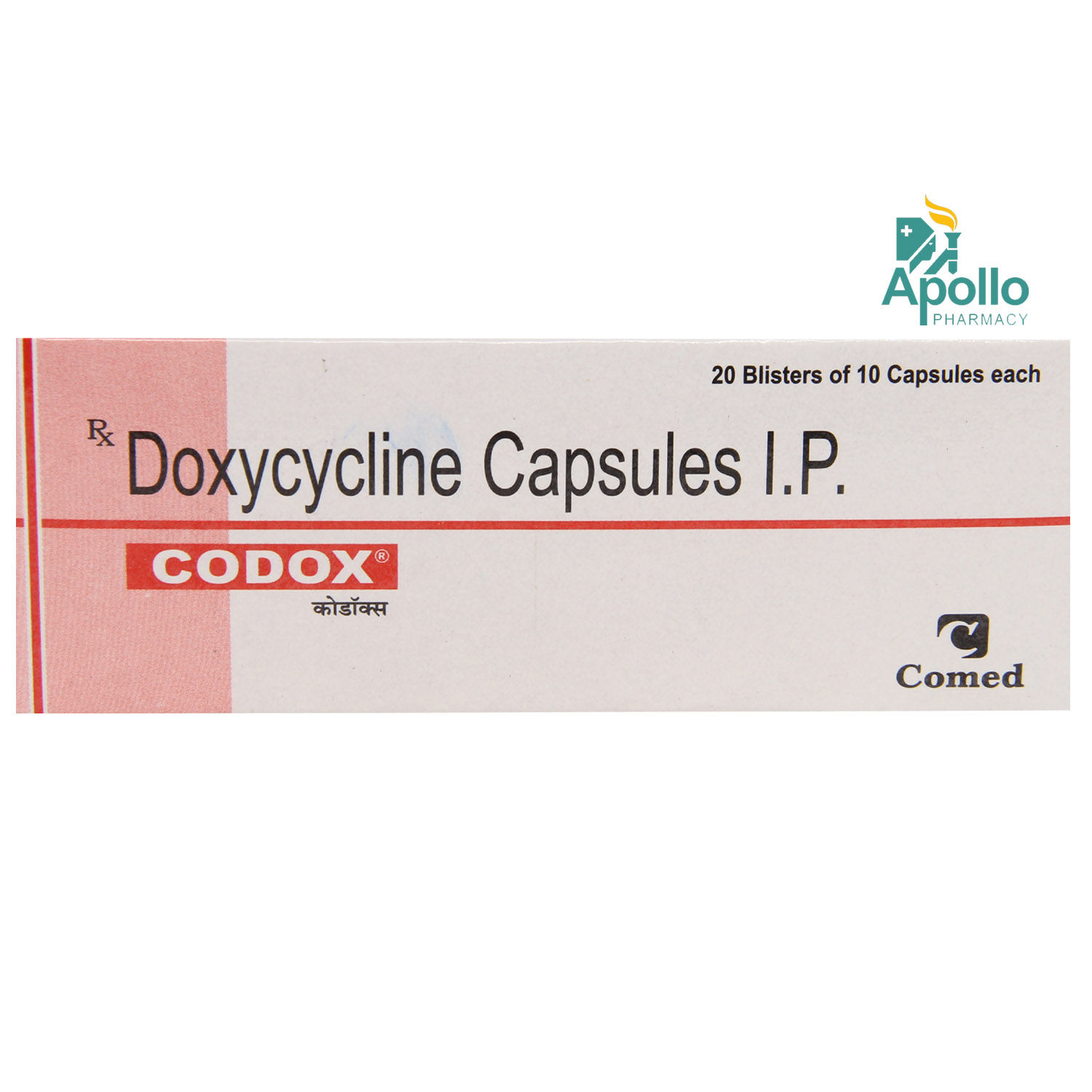Doxysafe 100 Injection
₹162*
MRP ₹180
10% off
₹153*
MRP ₹180
15% CB
₹27 cashback(15%)
Free Delivery
With Circle membership
(Inclusive of all Taxes)
This offer price is valid on orders above ₹800. Apply coupon PHARMA10/PHARMA18 (excluding restricted items)
Know Your Delivery Time
Provide Delivery Location

Whats That

Secure Payment

India's Most Trusted Pharmacy

Genuine Products
Composition :
Manufacturer/Marketer :
Consume Type :
Return Policy :
About Doxysafe 100 Injection
Doxysafe 100 Injection belongs to a group of medications called tetracycline antibiotics used to treat bacterial infections such as urinary tract infections, intestinal infections, respiratory infections, eye infections, skin infections, sexually transmitted infections (gonorrhoea, syphilis), and gum infections (periodontitis). Besides this, Doxysafe 100 Injection may also be used to treat or prevent anthrax.
Doxysafe 100 Injection contains 'Doxycycline' which stops the growth of bacteria by preventing the synthesis of essential proteins necessary for their survival. Thereby, Doxysafe 100 Injection helps treat bacterial infections. It is a broad-spectrum antibiotic which is effective against both gram-negative and gram-positive bacteria.
Doxysafe 100 Injection will be administered by a healthcare professional; do not self-administer. In some cases, Doxysafe 100 Injection may cause pain, itching, swelling or redness at the site of injection, nausea, vomiting, or diarrhoea. Most of these side effects of Doxysafe 100 Injection do not require medical attention and gradually resolve over time. Please consult your doctor if these side effects become troublesome.
Do not take Doxysafe 100 Injection if you are allergic to any of the components. Consult your doctor if you are pregnant or breastfeeding. Use of Doxysafe 100 Injection during tooth development (last half of pregnancy, infancy, and in children below 8 years) may cause teeth staining (yellow-grey-brown). Keep your doctor informed about your health condition and medications to rule out any interactions/side effects.
Uses of Doxysafe 100 Injection
Medicinal Benefits
Doxysafe 100 Injection belongs to the class of medicines called tetracycline antibiotics which is effective against a wide range of bacteria, including gram-negative, gram-positive bacteria, anaerobes, and some parasites. It is used to treat respiratory tract infections (influenza, pneumonia), genitourinary infections (syphilis, gonorrhoea), anthrax infection, sinuses, eye, and skin infections. Besides this, it is also indicated in the tick-borne infections (typhus fever) caused by the Rickettsia group of bacteria like typhus fever. Off-label, usage includes the prevention of malaria and the treatment of acne.
Side Effects of Doxysafe 100 Injection
- Pain, itching, swelling or redness at the site of injection
- Nausea
- Vomiting
- Diarrhoea
Directions for Use
Storage
Drug Warnings
Do not take Doxysafe 100 Injection if you are allergic to any of its contents. Inform your doctor if you have lupus, or if you are pregnant or breastfeeding. Use of Doxysafe 100 Injection during tooth development (last half of pregnancy, infancy, and in children below 8 years) may cause teeth staining (yellow-grey-brown). Consult your doctor if you experience any skin reactions, fever, muscle, or joint problems.
Therapeutic Class
Diet & Lifestyle Advise
- It would be best to take probiotics after completing the full course of Doxysafe 100 Injection to restore healthy bacteria in the intestine that may have been killed due to the usage of antibiotics. Taking probiotics after antibiotic treatment can reduce the risk of antibiotic-associated diarrhoea. Certain fermented foods like yogurt, cheese, sauerkraut and kimchi can help restore the intestine's good bacteria.
- Include more fibre-enriched food in your diet, as it can be easily digested by gut bacteria which helps stimulate their growth. Whole-grain bread, and brown rice, should be included in your diet.
- Avoid taking too much calcium enriched foods and drinks as it might affect the working of Doxysafe 100 Injection.
- Avoid intake of alcoholic beverages with Doxysafe 100 Injection as it can make you dehydrated and affect your sleep. This can make it harder for your body to aid Doxysafe 100 Injection in fighting off infections.
Habit Forming
How Doxysafe 100 Injection Works
What if I have taken an overdose of Doxysafe 100 Injection
Alcohol
Caution
It is not known if alcohol affects Doxysafe 100 Injection. Please consult your doctor if you have any concerns.
Pregnancy
Unsafe
Doxysafe 100 Injection belongs to pregnancy category D. There are no adequate and well-controlled studies on the use of Doxysafe 100 Injection in pregnant women. In some cases, taking Doxysafe 100 Injection during pregnancy may affect tooth and bone development in the unborn baby. So, if you are pregnant or planning for pregnancy contact the doctor before using Doxysafe 100 Injection.
Breast Feeding
Caution
Doxysafe 100 Injection is excreted in the breast milk. However, the extent of absorption of Doxysafe 100 Injection by the breastfed infant is not known. Hence, the nursing mother should consult the doctor before using Doxysafe 100 Injection.
Driving
Caution
It is not known if Doxysafe 100 Injection affects your ability to drive. Drive or operate machinery only if you are alert.
Liver
Caution
Doxysafe 100 Injection is to be taken with caution, especially if you have a history of liver diseases/conditions. The dose may have to be adjusted by your doctor.
Kidney
Safe if prescribed
At the recommended doses, Doxysafe 100 Injection is safe to use in patients with kidney disease if prescribed by a doctor.
Children
Caution
Use of Doxysafe 100 Injection during tooth development in infants and children below 8 years of age may cause permanent staining of teeth (yellow-grey-brown). So, it is not recommended for children below 8 years of age.
Country of origin
Author Details
We provide you with authentic, trustworthy and relevant information
FAQs
Disclaimer
Product Substitutes


















